LEEP Demo Day Spotlights Next Generation of Cleantech Entrepreneurs
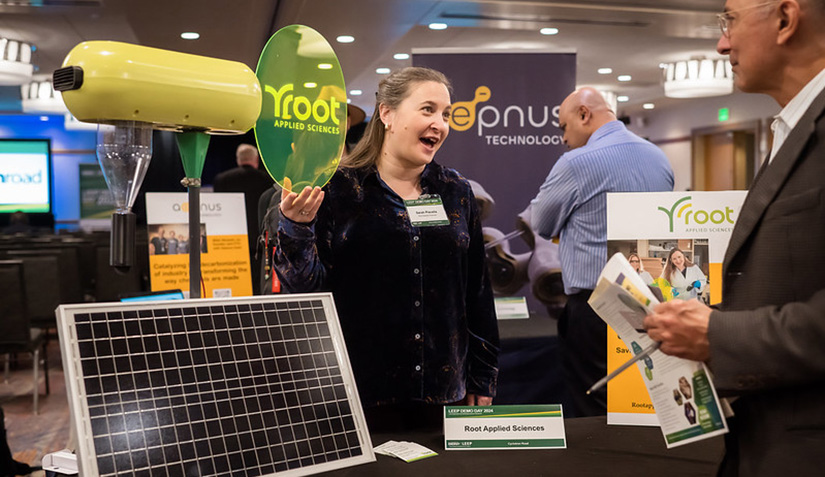
While sleek coastal startups may seem to have all the good technology ideas, eureka moments are happening in kitchens, car rides, and classrooms all across the United States.
To find these untapped sources of potential, the U.S. Department of Energy (DOE) is investing in creative cleantech problem-solvers through its Lab-Embedded Entrepreneurship Program (LEEP), a two-year program for promising entrepreneurs to develop transformative energy technologies.
On May 1, the latest group of soon-to-be LEEP graduates took the stage at LEEP Demo Day in Denver, Colorado, to show how their eureka moments had transformed into market-ready offerings thanks to this career-changing opportunity.
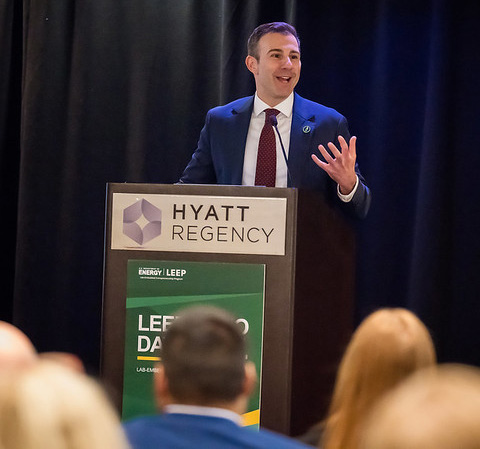
"At DOE, we are focused on doing everything we can to accelerate the clean energy transition," said Jeff Marootian, principal deputy assistant secretary of DOE's Office of Energy Efficiency and Renewable Energy. "We are proud to support the national labs and the entrepreneurs who are leading this effort, and it is critically important that we work together to scale these technologies, commercialize them, and get them out there to make that difference."
LEEP innovators are tackling a variety of climate challenges, like emissions, single-use plastics, overflowing landfills, and agricultural and industrial wastes. Some have ideas to change existing practices to be more efficient, cleaner, and less wasteful, while others are proposing entirely new methods to replace the status quo.
Four innovators are part of the inaugural cohort at West Gate—a LEEP node at the National Renewable Energy Laboratory (NREL). One innovator, Mikhail Konev, is enabling textile circularity by using oxygen to break down plastics into their basic components. His peer, Stefan Streckfus, converts inactive oil and gas wells into gravity energy storage systems. Andrew Gabor is pioneering ultraviolet fluorescence technology for enhanced solar panel defect imaging. And Grant Gunnison is revolutionizing home electrification by offering homeowners an app-driven platform that significantly reduces quoted project times and costs.
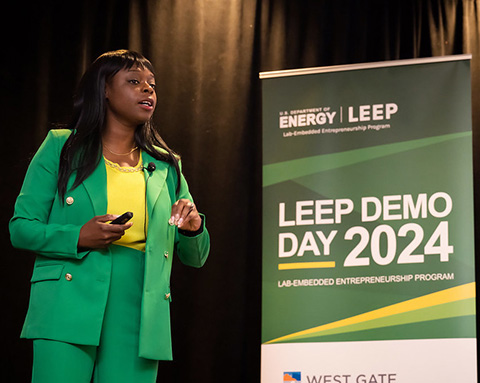
But having a brilliant idea is the easy part. Demonstrating commercial viability requires a cycle of prototyping, testing, planning, and improving—processes that can take many years for aspiring entrepreneurs who struggle to find enough time and money to dedicate to their ideas.
What makes LEEP Demo Day so exciting is that these tech ideas will be able to blossom into tangible products in far less time thanks to LEEP's structure.
"LEEP fills an existing gap for innovators in that earliest stage, which is the most critical time for hard tech ideas," said Paul Syers, DOE's program manager for LEEP. "We take the best ideas from the whole country, and we connect them to our national laboratories."
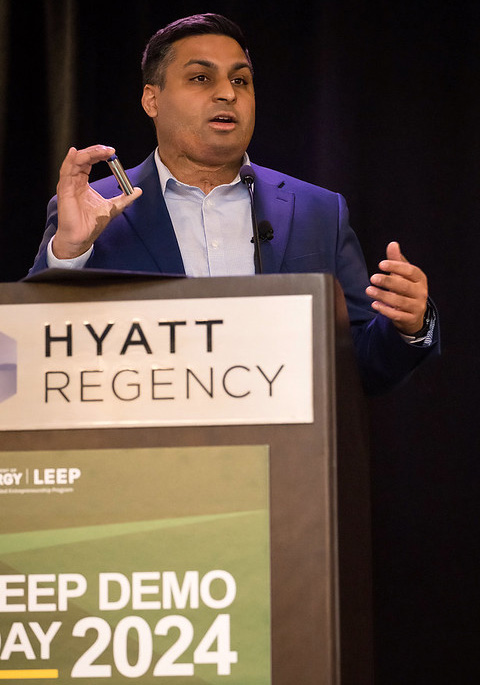
LEEP gives innovators a living stipend, access to world-class facilities, and a network of experts at one of its national laboratory nodes: Chain Reaction Innovations at Argonne National Laboratory, Innovation Crossroads at Oak Ridge National Laboratory, Cyclotron Road at Lawrence Berkeley National Laboratory, and West Gate at NREL. With this financial stability and unfettered focus on their ideas, selected innovators can accelerate their progress to market in as little as two years.
The recipe for this speedy success is melding the science and business worlds: Technology development activities are complemented by business development coaching. As the West Gate program director at NREL, Shelly Curtiss ensures a bespoke LEEP experience that provides the right balance of each and leverages external advisory networks.
"We use our local resources as much as possible," Curtiss said. "NREL has a robust Investor Advisory Board that West Gate is leaning on for advice about finding and raising capital. And of course, our fantastic lab researchers provide the kind of technical expertise these innovators never would have gotten elsewhere."
LEEP Demo Day is the culmination of this two-year journey, with 20 entrepreneurs across all four nodes pitching their market-ready solutions to an audience of investors, decision makers, and change makers from across the country. The event drew more than 150 attendees and showcased LEEP's momentum and impact.
"Within less than a decade of LEEP's operation, our innovators have collectively secured more than $2.6 billion in follow-on funds. A significant majority—more than 50%—is from the private sector," Syers said. "The LEEP alumni are one of the program's best resources. Who better to understand the perspective of creating a cleantech company from scratch?"
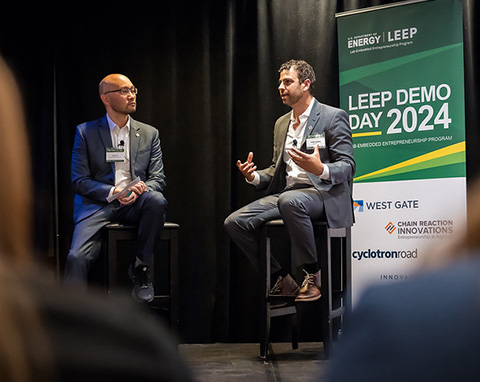
That LEEP enthusiasm to help fellow innovators overcome hurdles was gleaming in the eyes of Justin Whiteley, LEEP Demo Day keynote speaker and program alumnus, whose plant-based Meati products are now found nationwide.
"I love helping people figure out, 'How will this idea scale?' Because we want to have a real impact, and do something that's good for society, for the planet. And the only way to do that is through large scale. And so the question is, 'How do you get from here to there?' Because sometimes it's daunting to figure out."
Whiteley added, "I'm happy to give back to LEEP when I can because the program was so instrumental to helping [Meati] set up for success. Its value comes from supporting the companies that are the most challenging to build."
The expanding impact of these cleantech startups extends from local to national-scale economics. Collectively, LEEP innovators have created more than 2,300 jobs, started 155 new businesses, and seen a 97% startup success rate.
Learn more about NREL's West Gate program.

